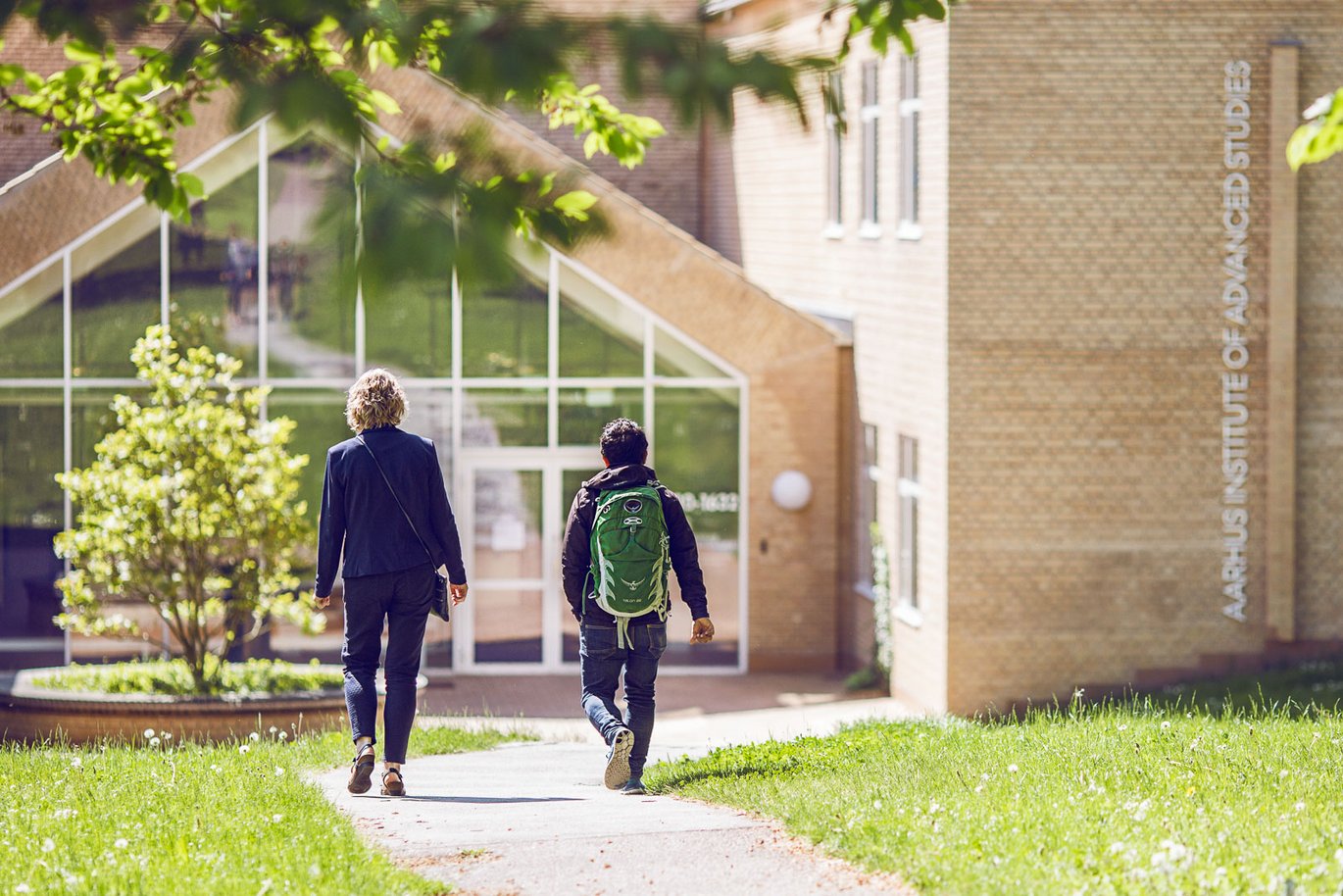Positive international evaluation of the Aarhus Institute for Advanced Studies (AIAS)
An independent international evaluation of AIAS concludes that AIAS after only five years has shown significant results and at the same time has become an established player on the international research arena.

“The expert panel sees clear indications that AIAS has been very successful in providing the foundation for ground-breaking ideas and discoveries.”
This is one of the statements of the expert evaluation panel, who has evaluated AIAS. The panel was composed of four high-ranking international research capacities:
- Professor Dr. Wilhelm Krull, chair of the Volkswagen Foundation (one of Europe’s largest research foundations; chair of the panel)
- Professor Diana Hicks from the School of Public Policy at Georgia Institute of Technology, USA
- Professor emeritus Peter Goddard, former director of the Princeton Institute of Advanced Studies, USA
- Professor Michal Linial, director of the Israel Institute of Advanced Studies, The Hebrew University of Jerusalem, Israel.
The international evaluation report of AIAS was commissioned by Aarhus University, and the evaluation panel was appointed by the Rector of Aarhus University Brian Bech Nielsen. AIAS is the first of its kind in Denmark and was opened five years ago, in 2013. It is an independent institute at Aarhus University with a mission to promote research of the highest quality through open international calls within all academic disciplines. Within a short time, AIAS has achieved two large EU grants of about DKK 86 million (EURO 11.5 million). With these grants the institute has secured an external funding of about a third of its total expenditures from 2013-22. Besides the EU funding, the institute is supported by The Aarhus University Research Foundation and Aarhus University.
Further excerpts from the expert panel’s assessment of AIAS:
“The expert panel finds the overall achievements of AIAS to be very impressive. Within a relatively short time, AIAS has been brought into an operational mode characterized by significant accomplishments and awareness of AIAS at the international arena.”
“AIAS has managed to attract highly qualified fellows. Subsequently, some fellows have been successful in obtaining prestigious research grants, which is further evidence of the high research quality of the AIAS fellows.”
“AIAS has managed to obtain very substantial external funding.”
The report also points to future potential improvements, e.g. that AIAS with advantage can look at its governance model and its long-term funding as well as on securing the continuity of the management quality.
For AIAS director, Professor Morten Kyndrup the positive evaluation is an important recognition.
”In the research world we always evaluate our activities. AIAS is an innovation at Aarhus University, and it was met with quite some skepticism in the beginning. Therefore, it is a great pleasure that the institute is already assessed as belonging to international top ranking. This is of course positive for the AIAS staff and for myself. But first and foremost, it is a positive achievement for Aarhus University, who has set forth on something new with this courageous initiative which has received a lot of international publicity and has given a great deal of respect to the university. Now on top of this, we also have an invaluable, independent stamp of approval.”
Also deputy chair of the AIAS Board of Directors Jørgen Frøkiær, professor and head of the department of Clinical Medicine at Aarhus University is satisfied:
”What is crucial here is that the beautiful praise AIAS has received comes from the outside, from independent, international experts. And the members of this panel are certainly of the highest international acclaim.”
About AIAS
AIAS is providing researchers from all over the world the possibility to work in depth with self-defined independent, innovative research ideas and projects through a research fellowship stay, from one to three years. Fellowships are applied for in an open call in international competition. Every year AIAS receives several hundreds of applications for half a dozen positions. The institute hosts about 35 fellows at a time, normally of close to 20 different nationalities.
Independent, free and novel research
Research in very different academic topics is the hallmark of AIAS. Several of the researchers take up societal challenges, e.g. some are looking at how freshwater resources can be managed and secured. Others are focusing on health improvements, e.g. in a project that is developing a special gene technology, ‘CRISPR’, that makes it possible to cut away unwanted genes and insert new ones with the so-called ‘DNA pair of scissors’. A technology that can contribute to curing genetic diseases and cancer.
New ideas are also formed at AIAS, in the meeting of fellows with very different research disciplines. Two researchers are right now combining their expert knowledge in ‘genetics’ and ‘psychiatry’ respectively, in a new project where they are looking at large numbers of data (Big data) of genetic studies to uncover the relation between neuroticism and depression.
The recent conference on ‘AI’, artificial intelligence, and neural networks, The Thinking Machine: Interdisciplinary Perspectives on Neural Networks was co-organized by five AIAS fellows from both the humanities, natural and social sciences. Here researchers from all over the world presented the most recent knowledge about a technology in rapid development and with enormous social and ethical consequences.
Contact
Morten Kyndrup, Professor, AIAS Director
E-mail: kyndrup@aias.au.dk
Phone: +45 2338 2115
Lena Bering, AIAS Communications Officer, special consultant
E-mail: lber@aias.au.dk
Phone: +45 2182 9843
Aarhus Institute of Advanced Studies, AIAS
Høegh-Guldbergs Gade 6B
DK-8000 Aarhus C
Denmark
www.aias.au.dk
